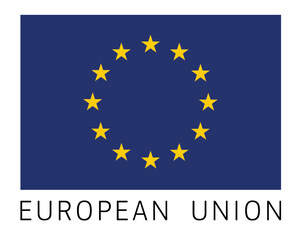WTO Airbus Case - Appellate Body Overturns Key Findings of the Panel in Favor of the EU
WASHINGTON, May 18, 2011 /PRNewswire-USNewswire/ -- The European Commission welcomes the WTO Appellate Body report on the Airbus case published today. The Appellate Body has overturned several key findings made by the Panel. Most importantly, the Appellate Body found that support provided by Germany, Spain and the UK for the launch of Airbus' A380 aircraft is not a prohibited export subsidy under WTO Law. It also rejected the U.S. appeal that other instances of Repayable Launch Investment (RLI) were export subsidies.
"I am particularly pleased with this important result," said EU Trade Commissioner Karel De Gucht. "The U.S. central claim that Airbus received prohibited export subsidies has been dismissed in its entirety. In addition, a number of claims, relating to R&D and infrastructure among others, were either rejected or only partially accepted."
The Appellate Body report, which is final and will soon be adopted by the WTO's Dispute Settlement Body, contains a number of clear findings – vindicating many of the EU's long held positions – including:
i. Repayable Launch Investment (RLI) for the A380 granted by Germany, Spain and the UK is not a prohibited export subsidy;
ii. All R&D programs in the EU (European, national and regional) are fully compatible with WTO rules, especially relevant when compared to the findings on NASA and Department of Defense support in the Boeing case;
iii. Treatment of infrastructure – the U.S. challenge on Aeroconstellation in France has been fully rejected, and the finding for the Muhlenberger Loch facility in Hamburg substantially improved;
iv. The French government's transfer of its interest in Dassault Aviation to Aerospatiale in 1998 was not a subsidy;
v. The Appellate Body reduced the element of subsidy that may exist in RLI, giving greater weight to the EU's proposed benchmark. It also substantially reduced the impact of adverse effects findings made by the Panel, reflecting the limited damage to Boeing from Airbus subsidies.
Certain "actionable subsidy" findings do remain, even though the economic impact of these support measures in the Large Civil Aircraft (LCA) market has been found to be very limited. RLI may contain an element of subsidy, however nowhere near the alleged amount of $15-20 billion. Certain old equity infusions and restructuring measures by France and Germany, infrastructure measures in Germany and certain regional grants by Spain and Germany also remain. The Commission will closely study the report in consultation with stakeholders in order to determine the next steps in this dispute.
This ruling is a further step to establishing the full picture of government support to the Large Civil Aircraft (LCA) industry on both sides of the Atlantic. In the EU's challenge of U.S. support to Boeing, the Panel found that Boeing received prohibited export subsidies under the Foreign Sales Corporation scheme, and programs by NASA, the Department of Defense and Washington State tax breaks have caused wide-ranging adverse effects to Airbus. Appeals to this panel report by the EU and the U.S. are currently pending.
Background to the WTO Aircraft Cases
Since October 2004, the EU and U.S. have been contesting at the WTO their Governments' respective support to their aerospace industries. Both WTO challenges relate to alleged illegal WTO support to Airbus and Boeing respectively over a 20 to 30 year period.
Prior to these WTO challenges, U.S. and EU government support to their aircraft producers had been regulated by the so-called "Bilateral EU-U.S. Agreement on Trade in Large Civil Aircraft". This agreement, concluded in 1992, allowed each party to provide a certain level of support to their respective aircraft industries. In the case of the EU, the agreement permitted granting of so-called "Repayable Launch Investment" to Airbus, i.e. loans repaid with interest under terms specified in the Agreement. In the case of the U.S., it allowed a certain level of government financed R&D support to the U.S. aerospace producer, Boeing. In order to monitor compliance with the terms of the bilateral agreement, annual meetings and regular exchanges of information took place.
On October 6, 2004, the United States quite unexpectedly and unilaterally announced its withdrawal from the 1992 Agreement and immediately filed a challenge at the WTO of all EU support ever granted to Airbus, even though the U.S. had previously agreed to this support.
In turn, the EU was left with little option than to respond itself immediately with a parallel WTO challenge of U.S. government support to U.S. aerospace industry (i.e. Boeing) by Federal, State and local authorities, including benefits to Boeing under the so-called U.S. Foreign Sales Corporation Scheme, which the U.S. government had continued to provide to Boeing, despite these subsidies having repeatedly been found to violate WTO rules.
These two parallel WTO challenges, the "Airbus case" (DS 316: the US challenge of EU support for Airbus) and the "Boeing case" (DS 353: the EU challenge of U.S. support to Boeing), despite having been initiated on the same day (October 6, 2004), have followed different timetables due to a number of delays at the WTO. In the "Airbus case," the WTO panel made its report public on June 30, 2010 whereas in the "Boeing case," the panel only issued its final public report on March 31, 2011.
The Appellate Body report in the Airbus case published today can be expected to be adopted by the WTO's Dispute Settlement Body (DSB) together with the panel report – as modified – in the coming weeks. It cannot be subject to further appeal. Under WTO rules, in order to comply with the finding of 'actionable subsidies' is to take appropriate steps to withdraw the subsidies or remove their adverse effects within 6 months of the adoption by the Dispute Settlement Body.
For further information
Background on the Airbus/Boeing cases:
http://trade.ec.europa.eu/doclib/docs/2010/september/tradoc_146486.pdf
SOURCE Delegation of the European Union to the United States
WANT YOUR COMPANY'S NEWS FEATURED ON PRNEWSWIRE.COM?
Newsrooms &
Influencers
Digital Media
Outlets
Journalists
Opted In





Share this article